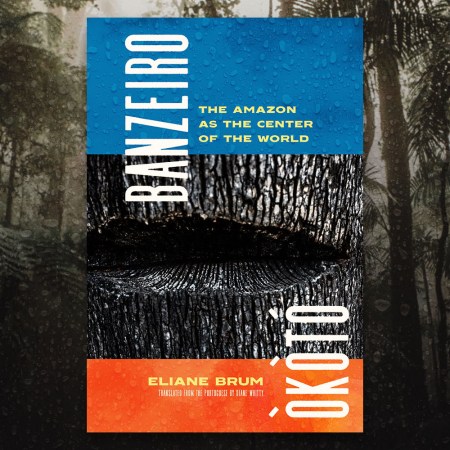Michael Punke is one of the most interesting and well-rounded writers in America. He was born in Wyoming, graduated Cornell Law and then went on to work in the Clinton and later Obama White Houses, serving as the Deputy United States Trade Representative and ambassador to the W.T.O. At some point, while flying in an airplane, he came up with the idea to write a novel about the frontiersman Hugh Glass. That book, The Revenant, came out in 2002, and would find a second life in 2015, when the Mexican director Alejandro G. Iñárritu adapted it for the big screen, with Leonardo DiCaprio portraying Glass in an Oscar-winning performance.
Punke, who somehow finds time to sit down and write historical fiction while shaping world economic affairs, now has a new novel out, Ridgeline. The narrative is set just after the Civil War, in an America trying not just to fix itself, but to rapidly expand westward. In the way of the expansion are the Lakota, led by the warrior Crazy Horse and the rightful residents of the land of the Powder River Valley in present-day Montana and Wyoming. What unfolds is the battle between what is and what was, of America trying to hold onto the ideals it was founded on while pushing out the people who called the land home for generations. And Punke, with his eye for detail and obsessive research, is unflinching in his portrayal of how America as we know it came to be.
Below, in an exclusive excerpt for InsideHook, Punke relates a tale of how Crazy Horse came by his reputation as one of the great warriors in American history, from a vision that visited him in adolescence to a bloody conflict in which his father’s interpretation of that vision was proven true.

July 17, 1866
Crazy Horse, Lone Bear, and Little Hawk worked their way slowly up the last climb before the descent into the valley of the Tongue River, where the Oglala and Minnicoujou were camped. Crazy Horse heard a haunting screech from behind him and reined his horse to look back, spotting the hawk just as it tipped a wing to catch an updraft, soaring effortlessly higher. The presence of the hawk comforted him, as it always did . . .
His father’s name had been Crazy Horse before he bestowed it upon his son.
As a boy, Crazy Horse had been known among his people as Light Hair for the wavy brown locks that set him apart. He had always been on the small side compared to his peers, but High Backbone had taught him to take inspiration from the animals around him. The wolf, the cougar, and the hawk, he had explained, all were brutally effective predators— but each hunted using its own particular strength. The strength of the wolf was in the collective cunning of the pack, many animals working together to bring down prey. The cougar relied on stealth, creeping silently through tall grass, its unwitting prey, suddenly in the grasp of tooth and claw, having never been aware that death stalked so near. The hawk’s vision allowed it to see for miles, then swoop down on its prey from the sky. What were Crazy Horse’s strengths, and how could he marshal them in battle? Even as a boy, Light Hair had learned to rely on cunning and agility instead of brute strength.
Yet it was the vision Light Hair received at the time he became a man that most defined him in battle. He had gone forth alone in the Month of Tall Grass and searched out a high place on the plains, a great plateau whose top consisted of sandstone, carved by wind and time into mystical shapes. There he had camped and fasted for days, awaiting the vision that he hoped would guide the rest of his life.
Finally it came. Light Hair had seen a warrior, bursting from the placid surface of a high mountain lake atop a charging stallion. The rider’s cheek was painted with a single lightning bolt and impressions of blue hailstones dotted his naked chest. As he galloped forward, a hawk flew behind him as if the two acted in unison.
A great storm pursued the warrior and the hawk, thunder and lightning spewing from an ominous black thunderhead whose clouds billowed up from the horizon all the way to the heavens. Somehow, the warrior outpaced the storm, but then a blizzard of arrows and bullets began to fly all around him. Miraculously, none struck him as he galloped directly ahead, undeterred. Just when it seemed the warrior would ride on to safety, the vision took a strange twist. From behind, the warrior’s own people appeared, reaching out their arms to pull him down.
Then it was over.
When Light Hair returned to his village he sought understanding of the dream from Crazy Horse, his father. His father listened solemnly as Light Hair reported every detail he could remember. After the son finished his recounting, his father sat for a while in contemplative silence. Then he offered his explanation, and it worried Light Hair that his father seemed so serious and even sad. The vision, his father said, portended great power but also danger. His father believed that his son could not die in battle, that the arrows and bullets of his enemies could never find him as their target. Yet his son would be hounded by powerful, looming danger his whole life. And while he could not be killed by his enemies, the vision foretold a more insidious danger—from his own people. Ultimately, his father told him, the true strength of the vision could not be known until it had been tested in battle.
Months later, Light Hair rode forth with High Backbone and other Lakota warriors on a raid in Shoshone country, near the Wind River. Light Hair would charge into a storm of enemy fire—and none of the bullets or arrows would pierce his skin. He killed two of his enemies, but then, while taking the scalp from one of his vanquished foes, he heard the report of a rifle and felt a sharp pain in his leg, looking down to see blood. Soon the last of the enemies was dead. High Backbone treated the leg wound, which was not serious, and they returned to the Lakota village in celebration.
Light Hair’s father heard the stories of his son’s bravery in battle, riding into arrows and bullets without fear, surviving unscathed except for the injury in the midst of scalping his foe. Later they spoke quietly, father to son. His father told Light Hair that the battle had proved the vision—but with an important additional lesson. No, Light Hair could not be felled by his enemies’ arrows or bullets. But the Creator had paired this great power with an obligation—he must fight not for his own aggrandizement or glory, but only for the betterment of his people. Others could lift scalps as trophies, adorn their clothing, recount their own bravery around the victory fires. Not Light Hair. He must walk the path of great humility.
His father’s way was to lead by example. He was not a warrior, and so the lessons in this domain would be left to High Backbone and others in the tribe. But he could show his son the path of humility. That night, amid the stories told by High Backbone and the others about the raid in Shoshone country, Crazy Horse—the father of Light Hair—sought the right to speak at the fire. It was surprising to hear a healer speak in this setting, and the assembled tribe fell silent to listen to his words. He began by saying that he had heard the stories told by others of his son’s bravery in battle. As a father, he was thankful for his son’s safety. He prayed to the Creator for his son—for all the tribe’s sons—to be protected in the future battles they would face in their lives.
To mark this day when his boy became a warrior and to celebrate his son’s contribution to the tribe, Crazy Horse would bestow a gift upon his son. Some in the tribe wondered what Crazy Horse had to give. As a healer, he did not maintain a remuda of horses like the warriors. He didn’t even own a rifle. Then Crazy Horse announced that thenceforth and forever, Light Hair would be known as Crazy Horse. He would give his son his name. And the father would take the new name of Worm.
There was a murmur in the crowd. Giving his name to his son might not be shocking, but who would give themselves a name such as Worm? Light Hair, though, understood at once. In giving him his name, Crazy Horse had bestowed his single most valuable possession—an appellation associated with his tribe’s respect for a life of good work on behalf of his people. Yet Light Hair saw how his father was doing more. To show his son the path of humility through his actions, the father was taking the additional step of embracing a new name for himself that marked the earth’s most lowly creature.
From that day, as a boy of fourteen, Crazy Horse had vowed to live up to his vision, to the name bestowed by his father—and to the responsibilities that came with both. He would endeavor to use his powers to be his people’s greatest defender, his enemies’ most relentless foe. All of this he would seek to do while walking in the footsteps of his father’s humility. While others might praise him or even sing his victories, he would not. Even from his enemies, he would take no trophies.
This article was featured in the InsideHook newsletter. Sign up now.






















